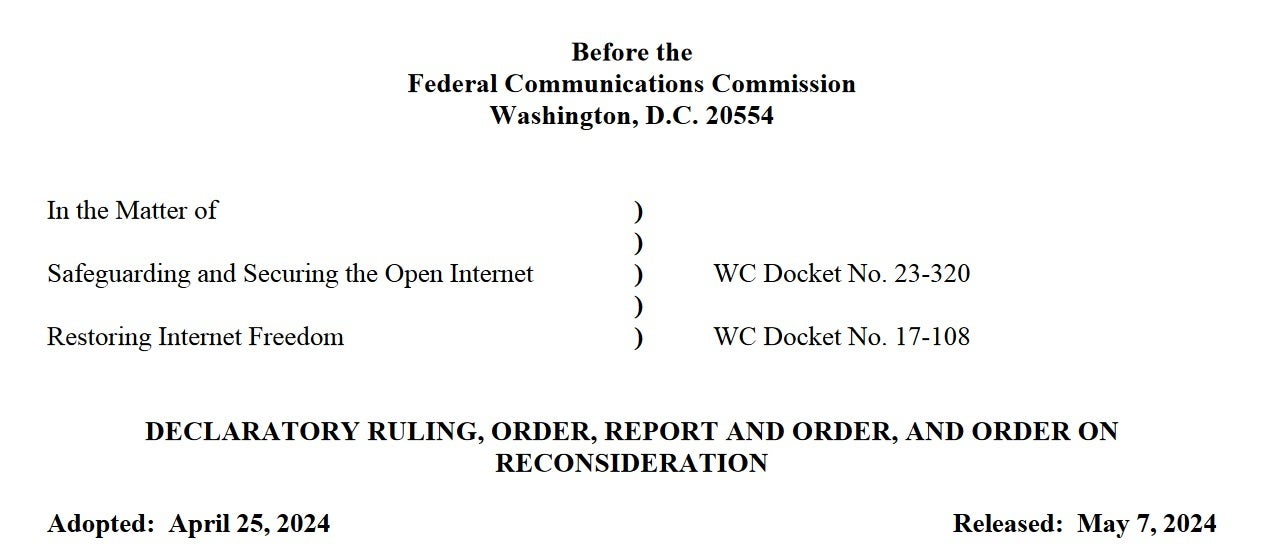The primary draft of the brand new web neutrality guidelines left a loophole for ISPs and wi-fi carriers

The FCC launched the Remaining Draft of its web neutrality guidelines on Might seventh
The primary draft would have allowed ISPs to offer “quick lanes” for sure purposes so long as the appliance supplier would not need to pay for the particular remedy that would offer them with a quicker web stream. As a substitute, shoppers could be anticipated to pay for the quicker streams. The preliminary draft did not handle such situations and solely explicitly blocked ISPs from slowing down purposes. ISPs may have taken benefit of this loophole by charging prospects extra for sure content material to be streamed over a “quick lane.”
Michael Calabrese, director of the Open Expertise Institute’s Wi-fi Future Venture, notes that cellular carriers cannot use “community slicing” to supply some broadband prospects a assured high quality of service for video conferencing from some prospects however not others. Standford Legislation Professor Barbara van Schewick stated the FCC’s “closing order makes clear that the no-throttling rule prohibits ISPs from rushing up in addition to slowing down apps or classes of apps. That is as a result of treating some favored purposes higher than others has the identical impact as slowing down disfavored apps—it makes it more durable for the disfavored apps to compete.”
Laws is required to stop web neutrality from coming and going each 4 to eight years
Those that help web neutrality state that in these situations, providing completely different lanes for various kinds of visitors would “degrade” the standard of the content material that is not being favored. The FCC stated, “We make clear {that a} BIAS [Broadband Internet Access Service] supplier’s resolution to hurry up ‘on the premise of Web content material, purposes, or providers’ would ‘impair or degrade’ different content material, purposes, or providers which aren’t given the identical remedy.”
The clarification signifies that rushing up content material is banned as a result of the no-throttling rule says that ISPs “shall not impair or degrade lawful Web visitors on the premise of Web content material, utility, or service.” Professor van Schewick advised Ars Technica that the FCC’s closing draft “clearly prohibits ISPs from limiting quick lanes to apps or classes of apps they choose.” Broadband suppliers plan to sue the FCC to stop the regulation from happening.
However what is basically wanted is laws to be handed that might make web neutrality a regulation. In any other case we may proceed to see web neutrality come and go each time a brand new social gathering comes into energy. For instance, Web neutrality was created through the Obama period, taken away through the Trump years, and returned below the Biden administration. Passing a web neutrality regulation may assist carriers with their long-term planning since they would not have to wonder if they should make web neutrality guidelines a part of their long-term budgeting.








/cdn.vox-cdn.com/uploads/chorus_asset/file/25336775/STK051_TIKTOKBAN_CVirginia_D.jpg?w=440&resize=440,0&ssl=1)
/cdn.vox-cdn.com/uploads/chorus_asset/file/25336775/STK051_TIKTOKBAN_CVirginia_D.jpg?w=320&resize=320,0&ssl=1)


Leave a Comment